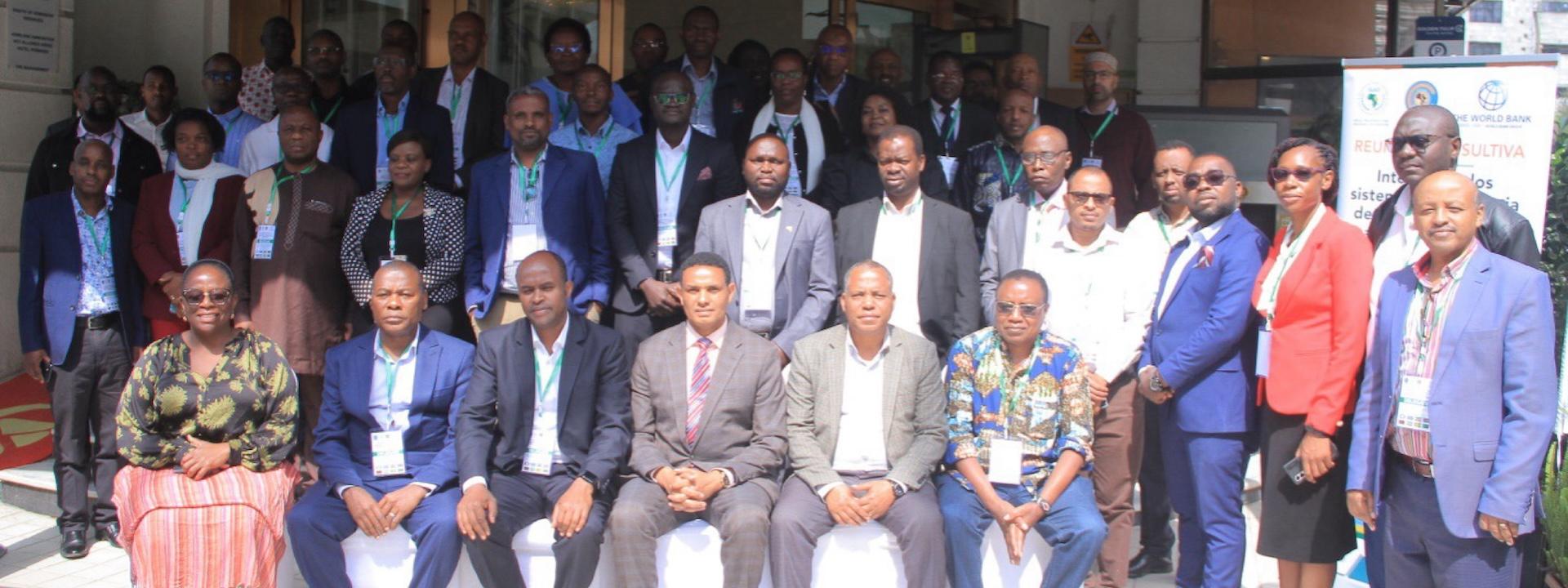October 18, 2024 (Addis Ababa, Ethiopia): The Intergovernmental Authority on Development (IGAD), in collaboration with the East, Central, and Southern Africa Health Community (ECSA-HC), convened a consultation meeting on the integration of disease surveillance systems among participating countries. This is part of the Health Emergency Preparedness, Response, and Resilience Project for Eastern and Southern Africa – Multiphase Programmatic Approach, held in Addis Ababa.
The general objective of the two-day consultation meeting was to identify priority areas for integrating surveillance systems, focusing on enhancing the detection, prevention, and control of health threats in the region.
Speaking on behalf of Dr. Workneh Gebeyehu, Executive Secretary of IGAD, Dr. Fatuma Adan, Head of Mission to the Republic of Kenya, emphasized the importance of cross-border collaboration and cooperation to maintain the continuity of services across borders. She noted that IGAD has extensive experience in these areas across all programs, including health, nutrition, and resilience, with a focus on vulnerable groups.
“I would like to express my gratitude to the World Bank for their support of this innovative initiative and for allowing us to promote it within your respective spheres of influence,” she added.
In his opening remarks, Dr. Mesay Hailu, Director General of the Ethiopia Public Health Institute, stated that the meeting provided an opportunity to share insights, best practices, and innovative solutions. “By leveraging diverse data sources and fostering cross-sectoral partnerships, we can create a robust surveillance system that safeguards the health of our communities, animals, and ecosystems,” he noted.
Dr. Mohamed A. Mohamed, Senior Public Health and Medical Epidemiologist Specialist at the MPA Project, ECSA Health Community, explained that the meeting strengthened partnerships between member countries and laid the foundation for a robust framework to guide future efforts. “We shared valuable insights and lessons learned and worked towards outlining a roadmap that includes clear steps and a timeline for developing the framework,” he stated.
Participants of the meeting were drawn from the Ministries of Health, Animal Health, and Environment from the HEPRR-MPA project countries, including Burundi, DRC, Ethiopia, Kenya, Rwanda, Sao Tome and Principe, Malawi, and Zambia, as well as RECs, Africa CDC, USCDC, UKHSA, and other partner organizations.
The consultation workshop was financed by the World Bank.
The meeting concluded successfully, discussing the way forward on identifying priority areas for integrating disease surveillance systems, focusing on enhancing the detection, prevention, and control of health threats in the IGAD/ECSA-HC (AFE) region.
The AFE Health Emergency Preparedness, Response, and Resilience (HEPPR) is a regional project with the objective of strengthening health system resilience and multisectoral preparedness and response to health emergencies in Eastern and Southern Africa. The project is being implemented in phases, and in phase one, the participating countries included the Federal Democratic Republic of Ethiopia, Burundi, DRC, Rwanda, Kenya, the Republic of Sao Tome and Principe, Malawi, and Zambia.

